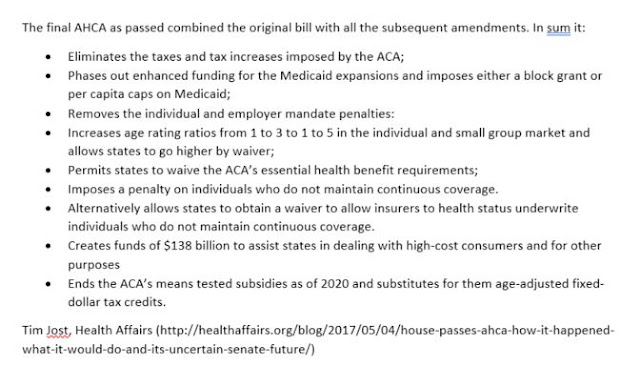DHHS is holding a public hearing on its Medicaid waiver application. Below are the comments I will either read or submit (based on turnout at the hearing).
Good morning. My name is Mitchell Stein, and I am an independent health policy consultant. I offer these comments on Maine’s 1115 Medicaid waiver application as a private individual, no client is paying for my time, and I am solely responsible for my remarks. I have spent my career working on various parts of our health care system. I started working for MetLife on long-term care insurance in 1991 and then spent over 15 years at Mercer Consulting in their healthcare practice. I’ve lived in Maine for ten years during which time I’ve worked at Health Dialog, Consumers for Affordable Health Care and the Institute for Clinical and Economic Review.
As you might imagine, during this time my understanding of this complicated topic has grown, and my perspective has matured. Today, when I analyze a proposed policy, I try and keep two things in mind; evidence and empathy.
Many speak of the need for evidence-based medicine. Too much of our current treatment is based on what has been done in the past, not based on what works. The same can be said of policy decisions. Too many are made based on what sounds like a good idea, often contradicting the evidence of what has worked and what has not worked.
While evidence is crucial, equally important is maintaining empathy for the people we are trying to help. If we start to treat them as data, we risk making decisions that denigrate their humanity.
With those points in mind, I will comment on two of the provisions of the proposed waiver: the asset test and the premium requirement. Spoiler alert, the bottom line is that both provisions would end up costing the state money while discouraging coverage of individuals who are eligible for the program and in need of benefits.
Before I continue, I’ll note that the written version of these comments contains details on the references I will cite.
Let’s start with asset tests. On first blush, the requirement seems to make sense. Why wouldn’t you want to keep individuals off the program if they sufficient assets to take care of themselves? However, the evidence tells a different story. While there are undoubtedly a few people who are gaming the system, experience in many states has shown that it costs much more in administrative costs to try and keep out these few bad actors than would ever be saved in program costs. Additionally, while imposing these tests would keep out only a few bad actors, the added complexity would keep otherwise eligible individuals from getting the benefits they need.
The Kaiser Commission on Medicaid and the Uninsured produced a report of state experiences after eliminating the Medicaid asset test. The report looked at the experience of ten states and concluded that the action cut administrative costs, improved program efficiency, and increased access to health care. With that in mind, why would we want to add back this provision?
Quoting from the report: “The surveyed states generally found that, despite being cumbersome for agency staff to administer and onerous for applicants to document, an asset test actually kept few families from meeting Medicaid eligibility requirements and may have prevented some from completing the application process.”
Now let’s talk about the proposal to charge Medicaid beneficiaries premiums to participate in the program. Again, at first, it may sound like a good idea – have individuals involved by contributing something to their coverage. However, once again the evidence shows us that collecting premiums costs more money than is collected and the need for empathy reminds us that we are keeping individuals from receiving the care they need.
A review of the states currently charging their Medicaid enrollees premiums finds that for many, the premiums are unaffordable resulting in otherwise eligible individuals being dropped from the program. Additionally, the attempted collection of premiums is not generating significant revenue for states.
Let’s look at two examples of the impact on enrollees:
In Michigan, 40 percent of people required to pay premiums are currently past due on their payments.
In Iowa out of approximately 17,000 enrollees subject to premiums, during December of 2015 5,760 cases were sent to collections for failure to pay while an additional 500 were disenrolled. The previous month, 3,520 were disenrolled.
Now, let’s see what the impact is no state revenue:
In Arkansas, 2016 saw the state spend $12 million dollars to implement its premium program. That after only collecting $384,000 in premiums the previous year.
In Michigan, the state is spending $20 million a year to implement the healthy Michigan program, while not all of that money goes to collecting premiums, a significant portion does. And yet in 2015 during one three-month period the state averaged collections of only $181,000 in premium per month.
In conclusion, as we contemplate changes to the MaineCare program we must remember that the purpose of the Medicaid program is to promote health coverage and access. It is more than fair to make changes that would save money while preserving this goal; however, the changes proposed under the 1115 waiver application would not do so. Judged by the mantra of evidence and empathy, the proposed changes would result in increased administrative costs while denying benefits to eligible individuals in need of those benefits.
Acknowledgments: In addition to the references cited, the resources of the Kaiser Family Foundation and Families USA have proven invaluable. I’m also indebted to Deborah Roseman for her use of, and thoughts on, the phrase “evidence and empathy.”
